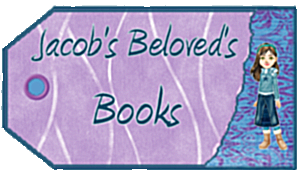
American Gods: A Novel
By Neil Gaiman
Genre: Fantasy
Published 2001, HarperCollins Publishers
Hardback, 461 pages
ISBN: 0380973650
Synopsis:
The storm was coming....I have only ever read one other adult book ( I don't count Coraline
Shadow spent three years in prison, keeping his head down, doing his time. All he wanted was to get back to the loving arms of his wife and to stay out of trouble for the rest of his life. But days before his scheduled release, he learns that his wife has been killed in an accident, and his world becomes a colder place.
On the plane ride home to the funeral, Shadow meets a grizzled man who calls himself Mr. Wednesday. A self-styled grifter and rogue, Wednesday offers Shadow a job. And Shadow, a man with nothing to lose, accepts.
But working for the enigmatic Wednesday is not without its price, and Shadow soon learns that his role in Wednesday's schemes will be far more dangerous than he ever could have imagined. Entangled in a world of secrets, he embarks on a wild road trip and encounters, among others, the murderous Czernobog, the impish Mr. Nancy, and the beautiful Easter -- all of whom seem to know more about Shadow than he himself does.
Shadow will learn that the past does not die, that everyone, including his late wife, had secrets, and that the stakes are higher than anyone could have imagined.
All around them a storm of epic proportions threatens to break. Soon Shadow and Wednesday will be swept up into a conflict as old as humanity itself. For beneath the placid surface of everyday life a war is being fought -- and the prize is the very soul of America.
As unsettling as it is exhilarating, American Gods is a dark and kaleidoscopic journey deep into myth and across an America at once eerily familiar and utterly alien. Magnificently told, this work of literary magic will haunt the reader far beyond the final page.
While the names of classical mythology fit into the category of the Old Gods, there are New Gods that have taken root in America, born from cultural obsessions that have evolved and devolved over the years, such as railroads - a man dressed as a railroad conductor, television - a voice talking through Lucille Ball on a rerun of I Love Lucy, vehicles - stocky men that seemed to resemble vehicles themselves, and internet - a short, nerdy, nervous kid, among other American fixations and stereotypes.
In addition, one of the scenic devices used throughout the plot is what Gaiman's characters describe as places of power - side-of-the-road dives that road-trippers visit for no apparent reason, such as a place boasting the largest doll collection in America or the biggest wheel of cheese. And no, Disneyworld is not one of them.
One of the things I found interesting about this Gaiman-born world is that the Old Gods only exist in the New World when regular people travel from other countries and bring their memories and practices with them, even when they don't intend to stay themselves. The gods are "born" from these average people, and even though they can be killed by others, they don't die otherwise, but instead alternately starve or thrive based on the behavior of the people who live and die in the New World. They all have counterpart manifestations of themselves in the countries they are pulled from, but one's existence does not affect the other - though they do seem to be aware of each other.
All of this is merely the background of the main plot, which centers around the activities and travels of a seemingly mortal man with a single name, Shadow. I never did "get" the one-name thing, but whatever. Through Shadow's narration, the reader learns of an impending storm - a battle between the Old Gods and New Gods, the former fighting for survival and the latter fighting for dominance. Shadow works for a mysterious "Mr. Wednesday" and is randomly haunted by his dead wife, Laura, but otherwise seems to have little drive of his own for most of the book. In fitting irony, he has his own brand of "magic" - an obsession for coin tricks to pass the time from his days spent in prison - which I could never really follow the descriptions of.
To be completely honest, I truly did enjoy this book, though I am struggling to say exactly why. Perhaps I was fascinated by the "shadowy" way that Gaiman told the story, or how he developed this over-the-hill world of gods and goddesses that better resembled America's middle and poor classes' struggles for survival, money, and influence. Some of the personal touches that Shadow's character added to the plot made him at times surprisingly endearing. In addition, the way that Shadow seemed to address the reader at the very end of the book was so satisfying that I laughed out loud and had to read it again several times. Something about that just brought the book to life for me and help me to fully appreciate the versatile style of Gaiman. This is one of those books you don't have to fully understand to fully appreciate.
The Cover: The cover seems to symbolize all the traveling that the main character does around the United States, with a lightning bolt to represent the storm that is alluded to throughout the plot. I like the simplicity.
First Lines: "Shadow had done three years in prison. He was big enough and looked don't-fuck-with-me enough that his biggest problem was killing time. So he kept himself in shape, and taught himself coin tricks, and thought a lot about how much he loved his wife."
This is definitely one of the stranger beginnings to a fiction book that I've read in a long time. I'm already curious.
Favorite Quote:"What I say is, a town isn't a town without a bookstore. It may call itself a town, but unless it's got a bookstore it knows it's not fooling a soul."

Read For: Read a Myth Challenge, I Want More Challenge, 101 Fantasy Challenge

























1 comments:
Gaiman's use of the gods sounds really interesting and it's good to hear you enjoyed it so much. Thanks for participating in our Myth challenge! :)
Post a Comment